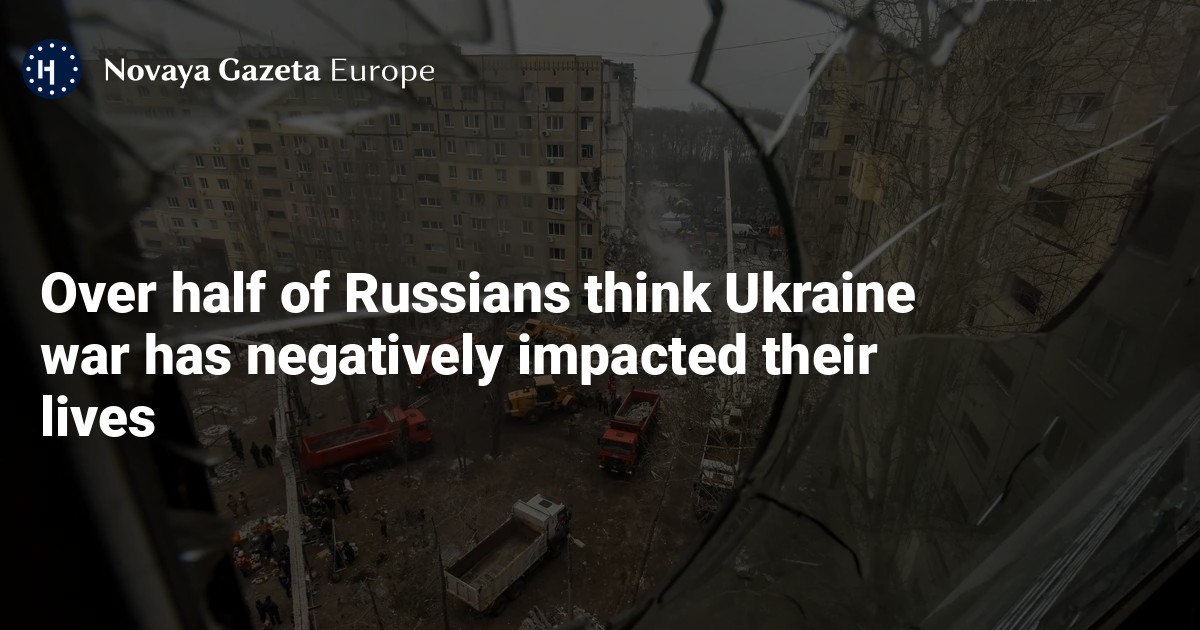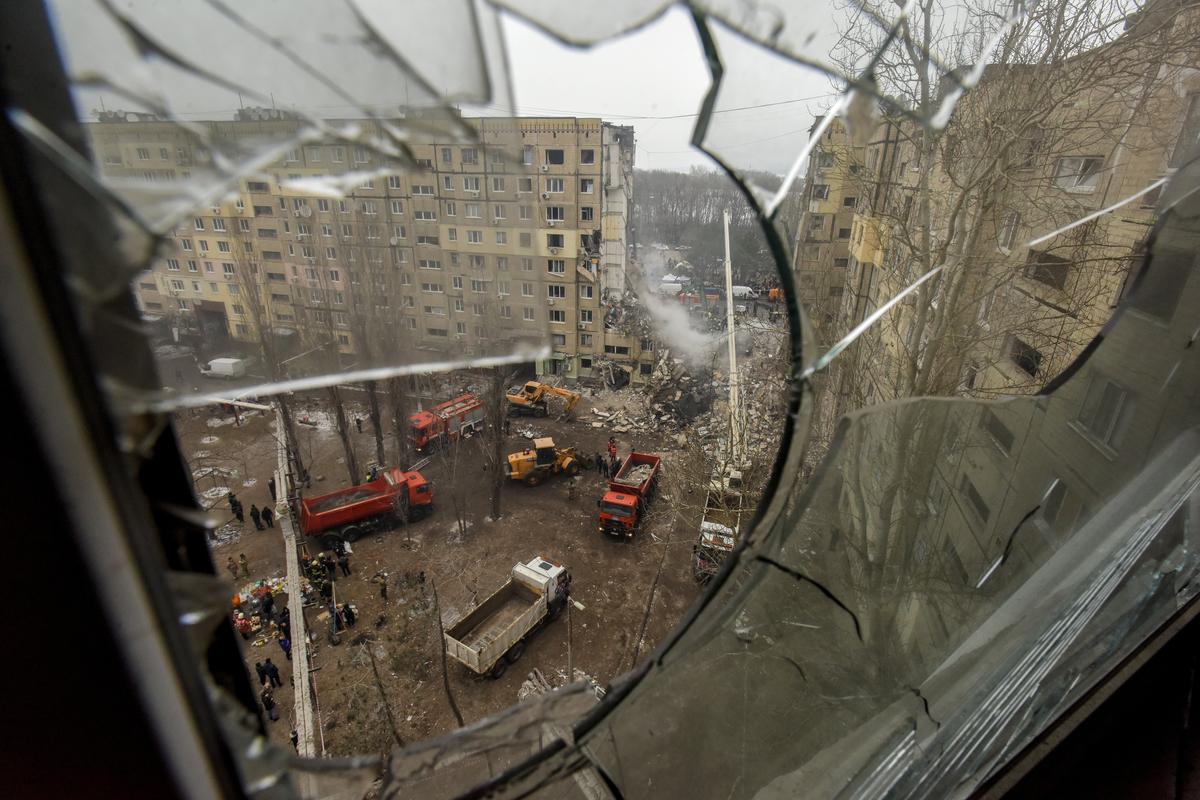




A damaged residential building in Dnipro, central Ukraine, 15 January 2023. Photo: EPA-EFE/OLEG PETRASYUK
Over 50% of Russians think the war in Ukraine has had a negative impact on their lives, a survey carried out by Russian independent research project Chronicles has found.
Chronicles, a sociological research project set up on the first day of the war to study popular attitudes to Russian military action, conducted a telephone survey of 1,600 Russians aged 18 and above who were selected at random between 5 and 13 February. The subjects were asked their opinion on three topics: the so-called “special military operation”, the withdrawal of troops from Ukraine without Russia achieving its military goals, and what spending areas should be prioritised in the state budget.
The survey found that 18% of Russians were consistent in their support for the war, which was 2% more than in September, while the number of those in favour of a peace deal was 21%, which was unchanged since September.
Chronicles considered those who expressed support for the war and prioritised military spending in the state budget while at the same time rejecting the withdrawal of troops from Ukraine before Russia had achieved its military goals to be consistent supporters of the war.
While 54% of those questioned said that the war in Ukraine had impacted their daily lives negatively, 32% claimed that it had not affected them in any way, while 9% said that it had actually had a positive impact.
Of those surveyed, 46% said that they would be against Russia bringing an end to the war without first achieving its military goals, a 15% increase since September, Chronicles noted. The proportion of respondents who said that they would support ending the war even if Russia failed to first achieve its objectives fell from 50% to 41%, which Chronicles attributed to the Ukrainian incursion into Russia’s Kursk region in August, as well as to the Russian army’s relative battlefield success in recent months.
The number of people who thought military spending should be a priority in the Russian budget decreased from 43% to 36% since September, while the number of those who thought that a better priority would be social programmes increased from 38% to 48%.
When asked what needed to be done to end the war, 26% of respondents said Russia should escalate the conflict, while 23% were in favour of de-escalation. A further 17% of those surveyed said that nothing needed to change, while 29% said that they found it difficult to answer.
